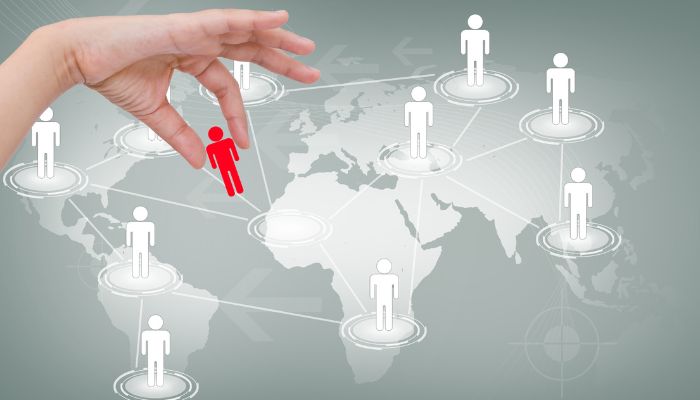A study published in a leading news daily revealed that over 39% of employers believe that workplace diversity and inclusion initiatives in Indian workplaces are disappointing. According to an Indeed.com survey, a whopping 73% of employees in India prefer to work for companies that actively promote inclusive activities. Unfortunately, only 21% of the companies participating in the poll had formal ‘Diversity, Inclusion, and Belonging’ policies in place.
With valuable data like this, one can infer that a company’s culture and how inclusive it is plays a crucial role in attracting and retaining fair and skilled talent. Hence, employers and leaders must take appropriate actions to ensure that the workplace is inclusive not just on paper.
Why it pays to have a diverse team
Workplace diversity and inclusion practices are prerequisites for building teams that deliver exceptional results. Among other things, inclusivity brings about:
Unique cultural perspectives: Diversity in the workplace isn’t just about bringing different genders and geographies together. It’s also an amalgamation of multiple cultures, perspectives, voices, and personas. Healthy access to contrasting viewpoints paves the path for ground-breaking ideas and discoveries.
You might also be interested to read: Does Workforce Diversity And Inclusion Influence Organization’s Growth?
A larger pool of talent: Unconscious biases often take precedence when hiring. Suppose a male leader heralded a specific role for many years, it can be difficult to envision a woman carrying the torch forward. Almost 24% of the employees believe they are ignored in social settings. Improving diversity and inclusion practices in the workplace must start with breaking hiring biases and allowing fresher perspectives to take centre stage.
Cultural sensitivity: We often forget that the ones running the show are real human beings with real stories. Within teams and organisations, it is crucial to have cross-cultural understanding. When presenting ideas and solutions, relying on the diverse team’s knowledge can help shed light on problems early on.
Why leadership teams should promote workplace diversity and inclusion
To build teams that thrive, policymakers in the workplace must account for all voices to be heard and implement practical solutions for sustainable growth. When the workplace becomes an equal opportunity provider in the truest sense, tangible outcomes such as workplace morale, increased productivity, and employee engagement comes to the forefront.
Leadership teams and policymakers can improve DE&I practices in the workplace in the following ways:
Make India-specific policies: In the US, 76.3% of the white population makes up the workspace. While this data illuminates disparities in the workplace on a global scale, it may not prove helpful for the Indian-workplace scenario. Hence, it’s crucial to delve into how India’s workforce is divided. According to The Centre for Monitoring Indian Economy, only about 40% of Indians are employed. Furthermore, a report released by the Ministry of Statistics and Programme Implementation revealed that only 22% of India’s female population are employed.
The numbers look dismal for India’s differently-abled. An article from Disability Information Services showed that only 0.4% of the employees among 70 companies were differently-abled, even though the state reserves 3% for those with disabilities. Leadership teams must actively hire talent from underrepresented communities to create a cohesive and non-exclusive space.
Leveraging data: While it may not be easy to step into the employee’s shoes, leaders can tap into behavioural data to analyse organisational barriers. Building a team shouldn’t stop at hiring and filling vacant positions. Leaders need to conduct timely surveys to know how employees feel. Do they feel heard? Do they feel like they are well-represented? Is the company lacking the basic awareness of functioning with diverse teams? Leadership and management should work together to make employees feel more included and bring their authentic selves to work.
Understand that diversity and inclusivity are not the same: Think of it this way. If diversity is the ‘What’, inclusion is the ‘How’. Diversity refers to employees from different ages, geographies, cultural backgrounds, physical abilities or disabilities, religions, genders, and sexual orientations. But if one were to dig deeper, it’s more than these traits. It’s also how perspectives, challenges, preferences, and characteristics make each individual unique.
On the other hand, inclusion is when every employee’s contributions are valued and each member is given the same opportunity regardless of who they are and how their background affects them.
Actively practise inclusive language: Language is a powerful tool in building high-performing teams. Our choice of words influence inclusion in the workplace, and one of the best ways to demonstrate inclusive behaviour is by continually learning inclusive language. Recognising that our language and words may intentionally or unintentionally exclude or include those around us is the first step to being respectful. Leadership teams should foster a culture where all team members feel equally heard and aren’t afraid to put their views forth.
Celebrate events focused on diversity and inclusivity: Celebrating and honouring events such as International Women’s Day, Pride Month, and the International Day of Disabled Persons, among others, is a great way to let your employees know they are cared for and cherished. It shows that you value them not only for their skill set but also who they are as individuals contributing to making the workplace a better environment for everyone around them.
Leadership teams and management should actively engage in workplace diversity and inclusion practises. Diverse workplaces fuel innovation and also help expand a customer base. An article published by Deloitte showed that diverse teams are also capable of making 20% better decisions. And according to a McKinsey report, ethnically and culturally diverse companies are likely to be 33% more profitable. So, if it only looks like a win-win situation and there’s only going up from here on, why are companies still acting unperceptive?
References:
- Around 77% Indian employers believe diversity, inclusion crucial for organisational performance: Report | The Indian Express | April 11, 2022
- 20 Diversity in the Workplace Statistics to Know for 2021 | Fundera by NerdWallet | December 16, 2020
- Only 40% Indians are employed or seeking work, shows data | The Hindu | April 25, 2022
- Current status of employment of disabled people in Indian industries | Disability Information Resources
- Understanding organisational barriers to a more inclusive workplace | McKinsey & Company | June 23, 2020
- Diversity And Inclusion: What’s The Difference, And How Can We Ensure Both? | ADP | June 25, 2018
- 15 Tips for Building a More Inclusive Workplace in 2022 | Kazoo
- Gender gap in employment is nearly 50 percentage points, according to jobs report | The Hindu | June 20, 2019
You might also be interested to read: Diversity And Inclusion Can Help Firms Get Talent






